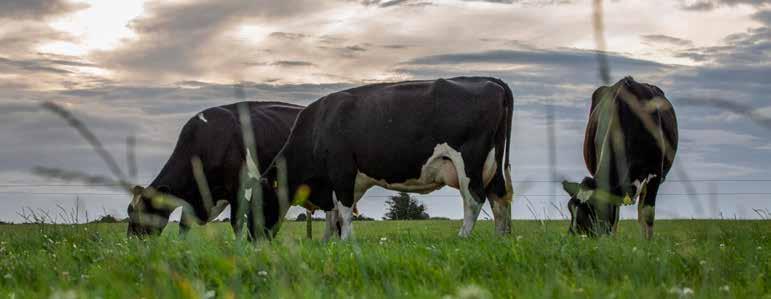
2 minute read
Policy in Focus
New CAP evolves with the needs of a changing Europe
The new Common Agricultural Policy for 2023 - 2027 is adapting to the changing needs and environment of European society in order to provide a greener, fairer and more flexible future – for farmers and every European citizen.
Launched in 1962, the EU’s Common Agricultural Policy (CAP) is a partnership between agriculture and society, and between Europe and its farmers to provide affordable food for EU citizens and a fair standard of living for farmers. The CAP is a cornerstone of the EU’s activities and represents a third of the budget between payments to farmers, which ensure affordable food for all EU citizens and support rural development. In the proposed new CAP 2023-2027, there are a series of measures to make European farming more sustainable, both in terms of reducing climate emissions and supporting vibrant rural communities. • A Greener CAP: Three of CAP’s nine objectives directly relate to the environment and climate, covering management of natural resources, climate change and biodiversity. Assessment of the respective plans of each member state will be reviewed in the context of targets already set out in the EU Green Deal 2030, the Farm to Fork and the Biodiversity
Strategy, reflecting a joined-up approach and linking to targets previously agreed. • Supporting the transition: CAP will support the transition to a sustainable future with multiple initiatives including: a programme to preserve carbon-rich soils such as peatlands; €256 million funding for organic farming; allocating a percentage of land for biodiversity; and helping farmers invest in and utilise technology to reduce the environmental impact. • Farmers and all beneficiaries of CAP payments will now be expected to adhere to European social and labour law, reflecting a more “socially fair CAP”, with penalties on those who do not provide adequate employment conditions. It is the first time that EU agriculture legislation has included this dimension.
• The new CAP also includes measures aimed at redistributing funds in favour of smaller and medium sized farms. This will involve redirecting 10% of benefits to support such farms. Furthermore, 3% of the total budget will be set aside for interventions to support young farmers. • Over €297 million will be allocated for eco-schemes, representing 25% of direct payments to farmers. These will cover five areas: devoting an increased proportion of land to non-productive areas/features, extensive livestock production, limiting chemical nitrogen input, planting of native trees and use of GPS-controlled spreaders to apply fertilisers. • Gender inclusivity in CAP: Female farmers currently make up just 12% (16,100) of the 137,100 family farms in the country.
Support for female farmers through the on-farm investment scheme known as
Targeted Agricultural Modernisation
Scheme will be increased to support and grow the number of female farmers.
Female farmers currently make up just 12% (16,100) of the 137,100 family farms in the country

Next Steps in the CAP 2023-2027
• The plan was voted on by the EU
Parliament on November 23rd and it will now proceed to the European
Commission to sign off on the legislation. • The CAP was approved by the EU
Parliament on November 23rd and is now proceeding to the European Commission for sign off on the legislation. • All member states must send in their respective plans by the end of 2021. • The European Commission will assess and approve the member states’ individual plans in the first half of 2022. • CAP is scheduled to be active from 1 Jan 2023.





